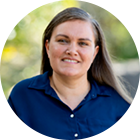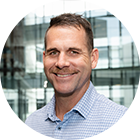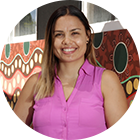NAIDOC Week is an annual celebration of Indigenous culture and excellence. It recognises the indelible place of Indigenous peoples in the deep history, and contemporary expressions, of modern Australia. To mark NAIDOC Week the Australian Institute for Disaster Resilience, National Indigenous Disaster Resilience, and Natural Hazards Research Australia, are proud to host a NAIDOC Week online panel ‘Fires, Floods, Pandemics: Indigenous leadership in disaster response’.
This online panel seeks to reframe Indigenous peoples in disaster resilience discourses from a lens of vulnerability to one of strength and leadership. While vulnerabilities do exist within Indigenous communities, understanding Indigenous people through the lens of vulnerability alone misses the strengths of communities and diminishes and neglects the leadership roles Indigenous groups have occupied in times of crisis.
This special NAIDOC Week panel shines a light on Indigenous health leadership in disaster responses. The discussion will explore the stories of each speaker who will reflect on their experiences leading public health responses to major disasters such as fires, floods, and pandemics. The panel will explore shared elements and points of divergence in their experiences, and end by considering how Indigenous groups might be empowered to continue to lead in future disaster responses.
Guest Speakers:
 Georgina Bruinsma
Georgina Bruinsma
Senior Manager Aboriginal Leadership and Engagement, Social Futures
Georgina is a proud Yaegl woman and has a passion for using her business knowledge and skills to bring better outcomes for communities. In her role at Social Futures she has been responsible for the oversight of organisation change and growth. Having worked within Aboriginal program delivery since 2007 in Lismore and across the North Coast, Georgina has been pivotal in strengthening relationships for building on the service provision to allow a holistic approach to the clients accessing services in the North Coast.
 Patrick Rosser
Patrick Rosser
Program Manager, First Nations Health Equity-Integrated Care, Gold Coast Health
Pat is a proud Wiradjuri man from Parkes in western New South Wales and is also a proud father, husband and long term foster carer. He is the Program Manager, First Nations Health Equity-Integrated Care (Gold Coast Health) and Co-chair of the Queensland Aboriginal and Torres Strait Islander Clinical Network. Additionally, Pat holds an operational portfolio in Disaster Management as the Health Liaison Officer / Human Social Recovery Lead for Gold Coast Health.
Pat has led a number of significant disaster response / recovery efforts which include the COVID-19 Pandemic Response – Hotel Quarantine Program, recent severe storm and flood events. Pat has also activated and mobilised the Human Social Mental Health Response to support other impacted areas of Queensland such as the recent fire events in Darling Downs (2023).
Pat has a professional sporting background, contemporary personal Indigenous experience and has worked in a range of clinical, leadership and management roles in the public health systems across NSW and Queensland and has diverse experience in other sectors such as higher education and child protection. Pat is a Social Worker with approximately 20 years of experience working in the human services sector combined with a belief and value system underpinned by a human rights and social justice framework.
 Kristy Crooks
Kristy Crooks
Aboriginal Program Manager, Public Health Aboriginal Team, Health Protection- Hunter New England Population Health
Kristy Crooks is a Euahlayi woman. She is the Aboriginal Program Manager and leads the Public Health Aboriginal Team, Health Protection- Hunter New England Population Health. She is also an APPRISE PhD scholar to develop a process of how to privilege First Nations voices in infectious disease emergency planning and response. She has extensive expertise in Aboriginal health, public health and cultural governance change within an organisation. Kristy was instrumental in leading the local COVID-19 response for Aboriginal peoples in Hunter New England Local Health District, and embedded cultural governance in the local Public Health Unit Incident Command System. She established a state-wide Aboriginal Health Protection Committee in NSW, was a member on the Aboriginal and Torres Strait Islander COVID-19 Advisory Group and is currently a member of the National Aboriginal and Torres Strait Islander Health Protection Sub-Committee.
 Professor Cheryl Desha
Professor Cheryl Desha
Science and Innovation Director, Natural Hazards Research Australia (NHRA)
Cheryl is the Science and Innovation Director at Natural Hazards Research Australia (NHRA), Australia's research centre for natural hazards resilience and disaster risk reduction. With the reality that "everything is connected and 'where' is critical to thriving, now and into the future", Cheryl is passionate about being 'ahead of ready' - enabling resilient and regenerative communities through evidence-based decision-making that is locally relevant. This involves industry and government partnerships to enable research that provides right-time and right-place solutions.
Facilitators
 Bhiamie Williamson
Bhiamie Williamson
National Indigenous Disaster Resilience Project, Fire to Flourish
Bhiamie Williamson is a Euahlayi man from north-west New South Wales with familial ties to north-west Queensland. Bhiamie has led research into the impacts of disasters on Indigenous communities including examining the impacts of the 2019-20 bushfires and 2022 northern rivers floods. He is a graduate of the Australian National University and the University of Victoria, British Columbia, Canada. Bhiamie leads the National Indigenous Disaster Resilience Project within the Fire to Flourish program at Monash University.
 Dr Margaret Moreton
Dr Margaret Moreton
Executive Director, Australian Institute for Disaster Resilience (AIDR)
Margaret is the Executive Director for AIDR and brings to this role significant experience working in the government, non-government, business and the philanthropy sectors. Her career began in federal government, before she undertook community-based research at the Australian National University that identified key factors that contribute to disaster recovery and resilience. Margaret has worked in paid and volunteer roles and has operated her own private consulting business in disaster risk reduction and resilience. Following the 2019-2020 bushfires, she spent time working in philanthropy. Margaret has developed a strong reputation as a disaster resilience specialist, working to build community resilience in partnership with a broad range of stakeholders and led by communities themselves.
Together with her team at AIDR, Margaret is focussed on developing and sharing knowledge, resources, and experience across a range of sectors, to lead or contribute to efforts that enhance community and systemic resilience to natural hazards, across Australia. She has a particular passion for amplifying the voices of diverse groups who have lived experience and significant knowledge and expertise, and have previously been overlooked or not included ‘at the table’. She feels a sense of urgency about disaster risk reduction work, and strongly advocates for partnership approaches, on the basis that urgency, relationship and trust are essential elements of bringing about systemic change.


